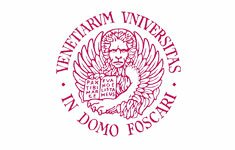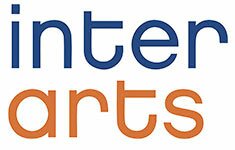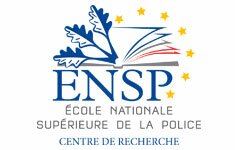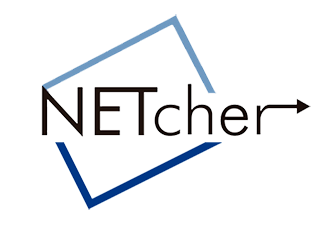The project develops along 7 Work Packages (WP) structured to reach a common objective, with deliverables, tasks and milestones. Along the project cycle, several meetings will allow the consortium to monitor the progress made by:
- gathering the consortium members and sharing results
- recruiting new stakeholders to systematically enlarge the network
- defining a common charter of good practices.
WP1 Worldwide state of play (CNRS)
 The CNRS will be in charge of identifying and mapping the available European and international resources (databases, tools, repositories…). It will also gather knowledge from past and on-going initiatives, research outputs and legal frameworks. Moreover, it will collect good practices and innovative instruments, and will identify gaps and needs. This work package will also reflect on common needs.
The CNRS will be in charge of identifying and mapping the available European and international resources (databases, tools, repositories…). It will also gather knowledge from past and on-going initiatives, research outputs and legal frameworks. Moreover, it will collect good practices and innovative instruments, and will identify gaps and needs. This work package will also reflect on common needs.
6 stakeholders’ Workshops will be organized by the CNRS, ENSP and DAI around the following themes: traffic channels and actors; preservation and reconstruction; origin and traceability; return and restitution; education and awareness-raising; operational and legal measures. By collecting experts’ advice on each theme, these workshops will allow to draw relevant conclusions about gaps and trends. The Advisory Board will validate this worldwide state of play.
WP2 Network construction and moderation (MCA)
 MCA will plan, organize and carry out networking, capacity and community-building activities reaching out to different professional stakeholders and communities. It will also define the strategy and actions for the further transfer of the project outputs. Through these activities, NETCHER will:
MCA will plan, organize and carry out networking, capacity and community-building activities reaching out to different professional stakeholders and communities. It will also define the strategy and actions for the further transfer of the project outputs. Through these activities, NETCHER will:
- Raise awareness among stakeholders about the NETCHER initiative
- Influence a change of attitude in stakeholders and communities by increasing knowledge
- Receive feedback from stakeholders and communities and foster trans-sectorial cooperation for new projects and future perspectives
- Foster the adoption of the NETCHER results by the target communities
WP3 Community Education (UniVe)
 UniVe will focus on transforming NETCHER network inputs into concrete training contents geared towards professionals and specialized communities and towards academic programs. This WP will:
UniVe will focus on transforming NETCHER network inputs into concrete training contents geared towards professionals and specialized communities and towards academic programs. This WP will:
- Design training content for specialized communities
- Organize the logistics of training provision, including communication activities
- Deliver training programs to selected participants
- Reflect on training experiences for further education initiatives
- Reflect on existing gaps in the European Higher Education system as regards programs focused on the safeguarding of endangered cultural heritage
- Launch a feasibility study for a Joint Master’s Degree in heritage protection and conservation
WP4 Collaborative platform and associated toolkit development (Interarts)
 Interarts will manage the NETCHER Social Platform through which information will be disseminated and continuous interaction and exchange among partners and stakeholders will be ensured. It will provide the Social Platform members with online and digital tools that meet their needs as regards initiatives to counteract illicit trafficking of cultural goods and to safeguard cultural heritage. It will also disseminate the best practices collected and the relevant information among stakeholders.
Interarts will manage the NETCHER Social Platform through which information will be disseminated and continuous interaction and exchange among partners and stakeholders will be ensured. It will provide the Social Platform members with online and digital tools that meet their needs as regards initiatives to counteract illicit trafficking of cultural goods and to safeguard cultural heritage. It will also disseminate the best practices collected and the relevant information among stakeholders.
WP5 Routes for international cooperation (ENSP)
 The ENSP will build an international and inter-professional framework against looting and trafficking of cultural goods. It will facilitate communication and cooperation between law enforcement agencies and stakeholders. It will also provide European citizens with a clearer access to information.
The ENSP will build an international and inter-professional framework against looting and trafficking of cultural goods. It will facilitate communication and cooperation between law enforcement agencies and stakeholders. It will also provide European citizens with a clearer access to information.
WP6 Dissemination and awareness-raising (Interarts)
 Interarts will foster interaction and participation among the stakeholders in the cultural heritage preservation community. Dissemination will also aim at promoting the project and its outputs at European and international levels, towards specialized communities and policy makers but also the general public.
Interarts will foster interaction and participation among the stakeholders in the cultural heritage preservation community. Dissemination will also aim at promoting the project and its outputs at European and international levels, towards specialized communities and policy makers but also the general public.
WP7 Project management (CNRS)
 The CNRS will coordinate the NETCHER project in administrative, financial, contractual and technical terms. It will also liaise with the European Commission. By ensuring high-quality coordination, the CNRS will manage the project outputs and minimize their related risks.
The CNRS will coordinate the NETCHER project in administrative, financial, contractual and technical terms. It will also liaise with the European Commission. By ensuring high-quality coordination, the CNRS will manage the project outputs and minimize their related risks.
